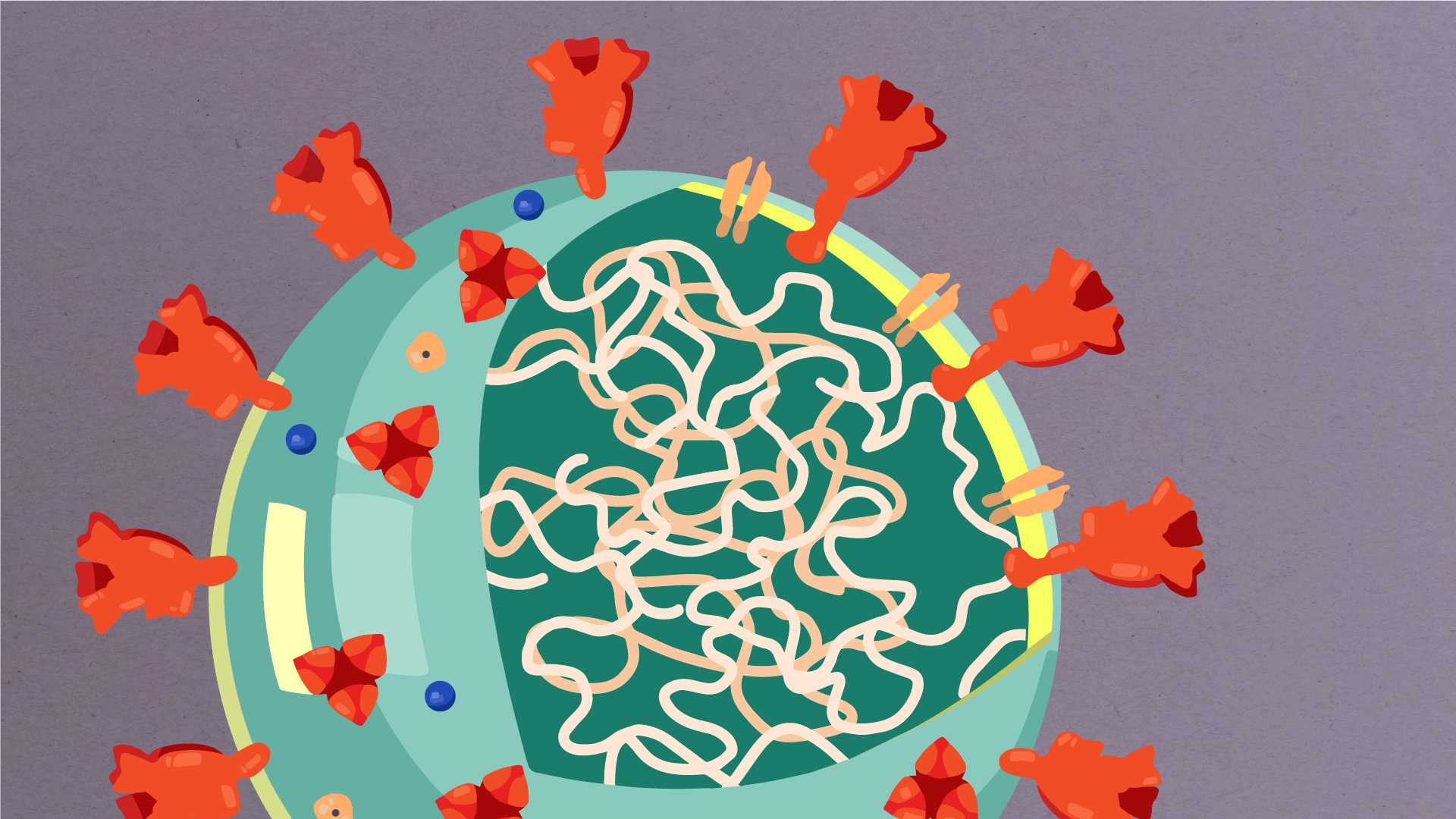You're Not Sick Anymore

You’re not sick anymore—so why are you still coughing? One theory posits that viral exposure makes receptors in our airways overly sensitive for a time after sickness.
Have you kicked a cold, bout of flu, RSV, or COVID recently—but can’t get rid of the cough? You’re not alone. The symptom can stick around for weeks after our bodies have cleared a virus.
Michael Shiloh, a physician specializing in infectious disease research at UT Southwestern Medical Center, says coughing patients often report that they were sick as many as eight weeks prior to seeing him. “We can't really detect virus anymore in these individuals, and yet they're still coughing,” he says.
The United States saw a surge in cases of influenza, RSV, and COVID-19 in late 2023 that’s dragged on into 2024. And though positive tests for these illnesses have leveled off or decreased countrywide over the past weeks, the number of people seeking healthcare for respiratory diseases is still elevated across much of the U.S.
Scientists still aren’t sure exactly why otherwise healthy people experience this kind of stubborn cough. But research on how infections meddle with nerves in the airway is revealing new clues.
What is a cough?
Coughing is an important reflex that protects the airway from dangers like noxious fumes, water, or bits of mis-swallowed food, says pulmonologist and researcher Lorcan McGarvey of Queen's University Belfast.
The reflex is triggered by nerves that reach into the airway. These nerves are decorated with receptor proteins that react to everything from cold air to capsaicin, the chemical makes peppers spicy. When an irritant triggers those receptors, nerves send signals up the vagus nerve to the brain that we experience as the urge to cough.
From there, the brain sends commands back down to the airway to cough or not. This detour to the brain is why there’s a degree of conscious control in certain types of coughs.
Scientists know about many different stimuli that can trigger cough, but they still don't agree on the specific biological mechanisms that trigger coughing while we’re sick, let alone in the weeks afterwards.
While it may seem obvious coughing is meant to clear our throats of mucus, it's also possible that viruses trigger the reflex to help themselves spread. Many infections involve dry coughs that don't produce phlegm at all. And if we do ultimately cough to clear out our airway during an infection, that still wouldn't explain what exactly our nerves sense during an infection that triggers a cough.
“We don't know,” says electrophysiologist Thomas Taylor-Clark of the University of South Florida. “But what we can say is we do know some things, one being that viral infection causes inflammation.”
Infections make nerves hypersensitive
When we’re sick, that inflammation jacks up the sensitivity of airway nerves, causing them to overreact, research suggests. One hypothesis is that stubborn post-infection coughs happen when nerves remain hypersensitive after the end of an illness.
“Just taking a deep breath, talking on the telephone, laughing, going out into cold air—these are things that in themselves are not harmful or noxious. But at least temporarily, they [can] send us into these bouts of coughing” even when we’re no longer sick, says McGarvey.
As early as 1990, researchers noticed that infection with a flu-like virus upped the sensitivity of airway nerves in guinea pigs, which cough like humans. Sick guinea pigs cough more when exposed to irritants like capsaicin than healthy ones, something that’s also been seen in people.
Now, scientists are linking this hypersensitivity to specific inflammatory chemicals and receptors on airway nerves.
In 2016, scientists discovered that infection with a flu-like virus caused certain nerves in the airway to make extra copies of a receptor protein called TRPV1, which reacts to capsaicin and other stimuli. Other studies, many on either guinea pigs or lab-grown human cells, have likewise reported increased copies of TRPV1 and other receptors during respiratory virus infections.
One 2017 study showed that even when a virus was “killed” with UV light, it increased copies of TRPV1 and another receptor in lab-grown human cells.
When to talk to your doctor
Post-infectious cough usually resolves in two to three weeks. But if your cough persists for more than eight weeks, Shiloh and McGarvey say that you should talk to a doctor. If the cough occurs with other symptoms like fever, shortness of breath, bloody phlegm, or weight loss, they recommend getting evaluated sooner.
Lukasz Antoniewicz, a pulmonologist who treats patients at the Medical University of Vienna’s chronic cough unit in Austria, says a few weeks of coughing after an illness is normal. Still, while eight weeks might be the official cutoff for chronic cough, in practice it can be a long time to go without relief, he says.
“I have young patients, around age 30, and they get broken ribs only due to coughing.They don't have an underlying bone disease. So it's a very, very strong reflex. And it hurts a lot,” says Antoniewicz. “When you cough for one month, I would say it's maybe it would be a good reason to seek out your doctor.”
source
https://en.wikipedia.org/wiki/COVID-19_pandemic
https://www.worldometers.info/coronavirus/
https://www.medicalnewstoday.com/articles/hyperesthesia#:~:text=Hyperesthesia%20is%20a%20neurological%20condition,intensity%2C%20frequency%2C%20and%20quality.
https://www.webmd.com/brain/what-is-hyperesthesia
https://www.mayoclinic.org/symptoms/cough/basics/definition/sym-20050846#:~:text=A%20cough%20is%20your%20body's,cough%20is%20normal%20and%20healthy.
https://my.clevelandclinic.org/health/symptoms/17755-cough






































































